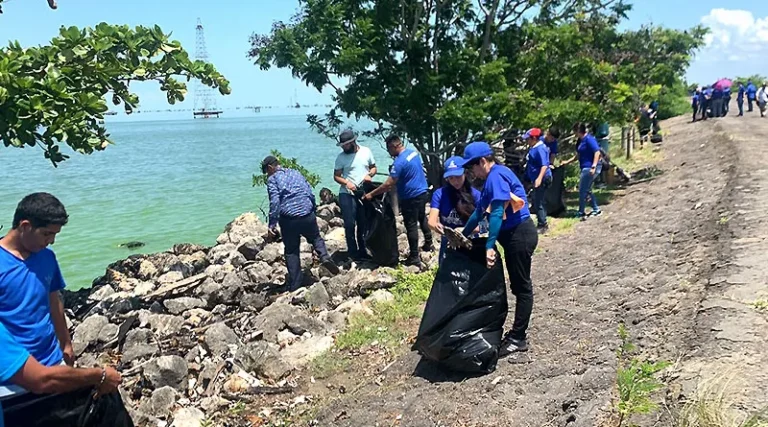The Minister of People’s Power for Ecosocialism, Josué Lorca, heads the group of experts from the University of Zulia and the Institute for the Control and Conservation of the Basin of Lake Maracaibo (ICLAM) who have been meeting since Tuesday with Dutch representatives from the Tethys Project.
The current contacts between local specialists and those from Tethys, an institution for online knowledge on the environmental effects of wind and marine renewable energy, is part of the Master and Strategic Plan for the Rescue, Conservation and Sustainable Development of Lake Maracaibo, Lorca explained.
The Añu Santa Rosa de Agua indigenous community, in the state of Zulia undertook the process of cleaning up the Monte Cristo channel of the Basin, where it built a skirt barrier at the entrance of the channel to minimize the entry of plastic into the area, it was reported.
ICLAM personnel, on the other hand, began a day of awareness-raising in environmental education about Lake Maracaibo with children from the sector, in order to instruct them at an early age about the care and preservation of these sites.
Lake Maracaibo, which covers an area of 13,210 square kilometers, is a freshwater coastal lake in the westernmost region of Venezuela, withing the states of Zulia, Trujillo and Merida.
Scholars rank Lake Maracaibo among the largest in the world and the second oldest on Earth, aged 20-36 million years (after Lake Baikal in Russia’s Siberia).
jg/arm/mem/ap









